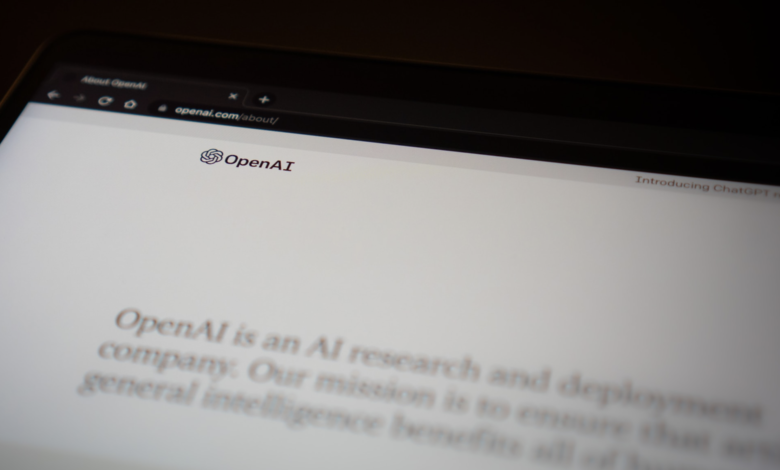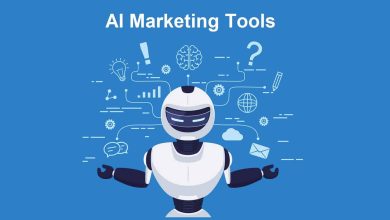
Unless you don’t read the news or don’t have access to the Internet, you would have heard of ChatGPT, or Open AI at least. In January 2023, ChatGPT set the record for fastest user growth when it reached 100 million active users, only two months after its launch by Open AI. Around that same time in January, it was announced that Microsoft extended its partnership with Open AI following previous investment in 2019 and 2021.
What’s interesting about ChatGPT is that the language model it is built on (GPT-3) is considered to be one of the most sophisticated language models ever produced. Although it is still far from being a finished product, it is already being used by many as an assisting tool to write content and do research. More specifically for marketing, we are already seeing plenty of use cases for ChatGPT in various sub-sectors, including SEO and copywriting but have not seen much how it could have an effect on app marketing.
After all, with over 2.8 million apps available in the Google Play Store and 2.2 million in the Apple App Store, app marketing is a very competitive area, making your app stand out and attract a significant user base can be challenging. It isn’t enough though to have just great features and the best user experience. You need to be able to get your app from the app store into the phones of your customers. And with the app market being so competitive, this is no easy task.
So, where does ChatGPT fit into app marketing? It can actually be used at each step of the app user lifecycle (Awareness, Acquisition, Engagement & Retention, Revenue, Loyalty). However, to take the most out of new technology, you need to know how to work with ChatGPT.
So, let’s dive deeper into the world of app marketing with AI and see how Chat GPT can assist you with your daily app marketing work.
ChatGPT and app marketing – where do I start?
You can use ChatGPT at each step of the app user lifecycle – let’s look at each step in more detail.
Awareness
This is when the user becomes aware of the app through various channels such as app store search, social media and advertising. At this stage ChatGPT can help app developers and marketers to conduct market research, identify trends and challenges in a specific category, brainstorm promotional ideas for different channels, create a promotional strategy for different channels or create concepts for ads.
As an example, try asking ChatGPT a prompt such as “Act like a mobile app developer that wants to put his app in the Google Play Store. Give me the exact list of steps on what I need to do to publish it in Google Play Console. Also, provide me the list of exact requirements that I need to consider.”
Acquisition
This is when the user downloads the app and starts using it. At this stage ChatGPT can help app developers and marketers to create a user acquisition strategy, brainstorm ideas on how to increase app installs, generate various app names for A/B testing, write an app description with keywords or translate app store metadata to different languages.
Here you could ask ChatGPT to “Act like a mobile app marketer that wants to get more app users in Google Play and App Store. Give me a list of 10 different ideas that I can use to get more people to find, download and use my [app category] app. Include online and offline ideas and tactics.”
Engagement & Retention
This is when the user begins to engage with the app and receives value from it. The user continues to use the app regularly and becomes a loyal user. At this stage, ChatGPT can help app developers and marketers to analyse competitors’ app features, brainstorm new features for a specific app and target audience, generate ideas for users’ onboarding, write personalised messages for different target audiences or create a user retention strategy.
Revenue
This is when the user begins to generate revenue for the app through in-app purchases or other monetisation strategies. Here ChatGPT can help app developers and marketers to brainstorm a list of monetisation ideas, analyse the most profitable apps on the market, create a monetisation strategy for a specific app category and target audience, provide a step-by-step guide on how to monetise a particular app or game, or generate suggestions on how to increase app revenue.
Loyalty
This is when the user recommends the app to others, leading to new user acquisitions. ChatGPT can help app developers and marketers to generate ideas for encouraging users to share the app, write personalised prompt notifications, brainstorm user rewards ideas, generate ideas for UGC campaigns, or even create shareable content.
To get ideas on how to get users to create UGC campaigns, you can ask: “Provide me with ideas of sharable content for my [app category] app..”
How to conduct app marketing research with ChatGPT
Let’s have a look at how one would conduct app marketing research for a casual game. In general, if you’re looking for a way to do your app marketing research, ChatGPT is the perfect tool for you. You can start by asking AI what the required steps in app market research for a specific category are. Let’s see what ChatGPT suggests if you prompt the following request.
“Act like a mobile app marketer that wants to research a mobile app market in the casual game category. Provide me with a list of app market research steps.”
The screenshot below shows how ChatGPT responded:
ChatGPT provided us with a comprehensive list of 9 market research steps. Now, you can ask ChatGPT to help you with the steps mentioned above.
Let’s look at the first step and create a relevant prompt, such as “Please define the target audience for casual mobile games. Determine the demographic profile of the users most likely to download and play casual games.”
Here is the result that ChatGPT provided:
See, you saved a few hours that you would have normally spent researching the target audience for this specific category. You can ask additional questions to go even deeper into defining a target audience. But these insights already give us an overview of the target audience we can use to create a target persona.
To complete market research with ChatGPT, you should go with each defined step and ask it for more insights. Going through each step will take you little time and give you an overview of the research market. Remember to explain your prompt as clearly as possible; if you don’t get desirable results, try rephrasing your question or task.
There are of course some limitations to ChatGPT. App marketing still requires the human element and AI is not “stealing” anyone’s job right now – but on that note, it’s more likely that app marketers that use AI that will be more in demand in the near future. The human element comes at setting up ChatGPT properly with the right wording tailored to your app, as this is something that can go wrong without prior experience of AI. And don’t forget, answers from ChatGPT should still be reviewed and improved upon – rather than taken at face value. However, that shouldn’t put you off trying ChatGPT for different stages of your app marketing strategy. As AI becomes a bigger part of our everyday worklife, app marketers and developers will need to take advantage of these tools to be able to compete with other businesses that are embracing these new technologies.




